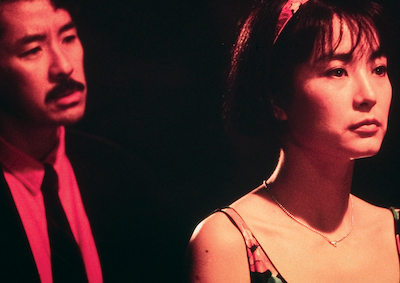Presented in partnership with the UCLA Center for Chinese Studies.
Opened at 649 N. Spring Street by Hong Kong immigrant Tony Quon Lew in 1962, the Sing Lee Theatre (also known as the King Hing Theatre) became a cornerstone of Los Angeles’ Chinatown’s cultural life — first as a venue for live Cantonese opera featuring visiting Hong Kong stars, and later as a hub for Chinese-language cinema. Serving the city’s rapidly growing Chinese American community (the Asian Pacific American population more than doubled between 1940 and 1960), the theater provided a vital community gathering place. After Lew’s death in 1968, his wife, Margaret Lew, transitioned the theater to film exhibition, and by the 1980s it had joined Gordon’s Film Inc., a North American distribution network for Hong Kong films with partner theaters in New York, Boston, Toronto and San Francisco.
Over several decades, the Lew family, and later owner Sik Wah Lew, screened a vast range of Sinophone cinema, including, but not limited to: 1960s Cantonese opera and historical epics; 1970s Hong Kong martial arts and Taiwanese literary melodramas (wenyi); and 1980s–1990s horror, Hong Kong Golden Age and exploitation productions. Featuring major studios such as Shaw Brothers, Cathay, D&B and Cinema City alongside works by pioneering women filmmakers, the Sing Lee Print Collection at the UCLA Film & Television Archive — nearly 600 35mm prints deposited in 2016 — is one of the few surviving collections from a single Chinese-language theater outside the Sinophone world. This series features films from 1960–1988 and marks the UCLA Film & Television Archive’s first public presentation of rare prints from this culturally significant collection.
Series programmed and notes written by Public Programmer Beandrea July; Janet Louie, Ph.D. candidate in East Asian Languages and Civilizations, Harvard University; and Archive Research and Study Center Officer Maya Montanez Smukler.






 Mobile Navigation
Mobile Navigation






